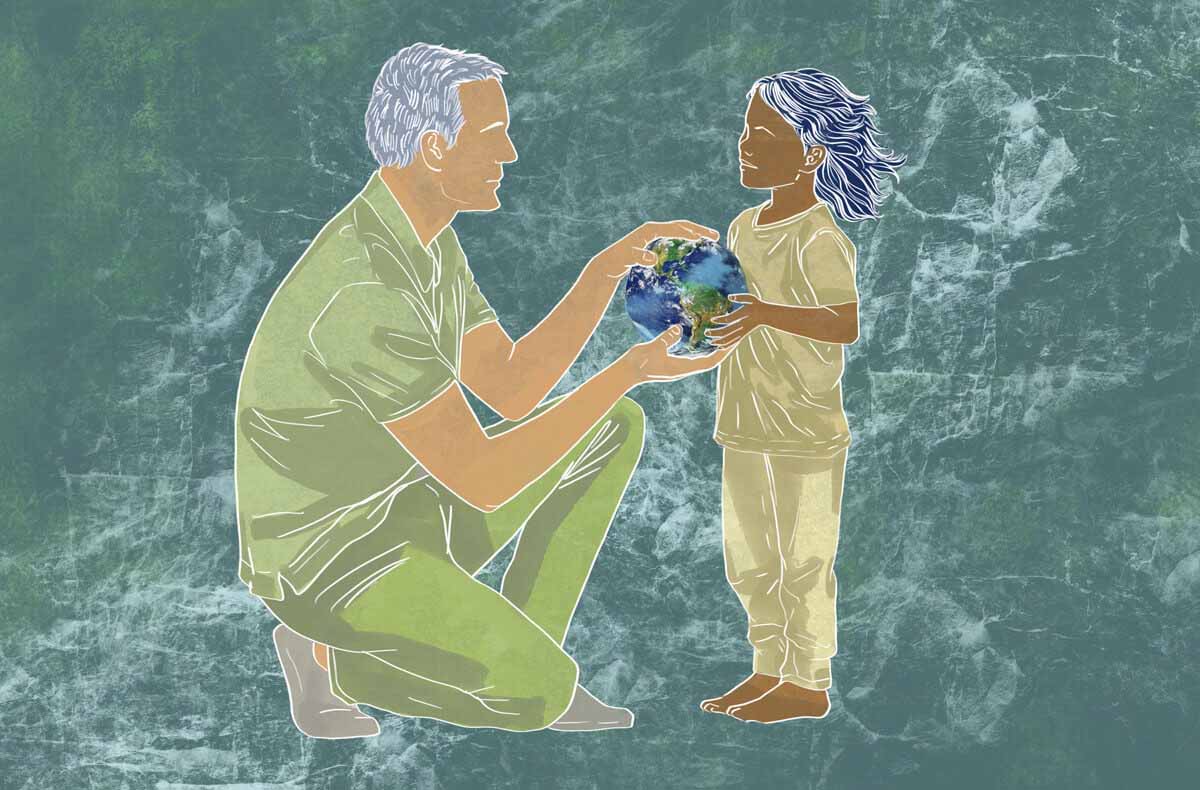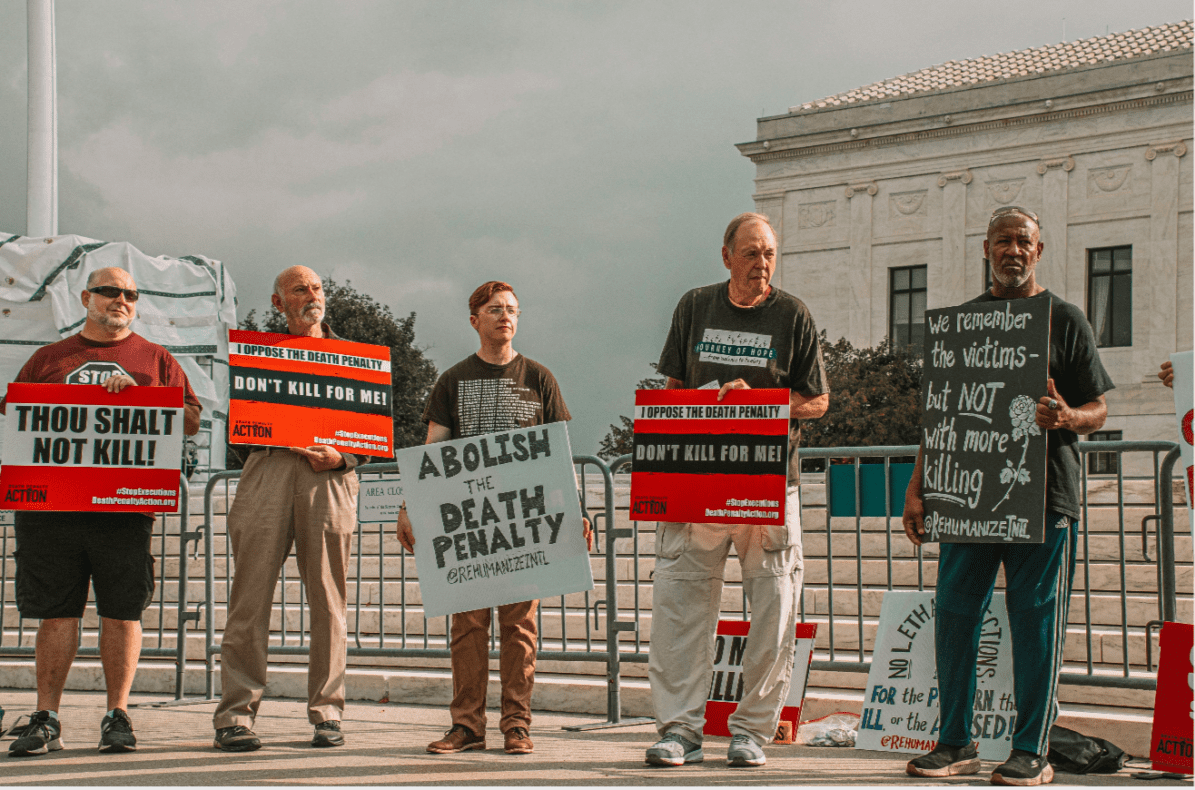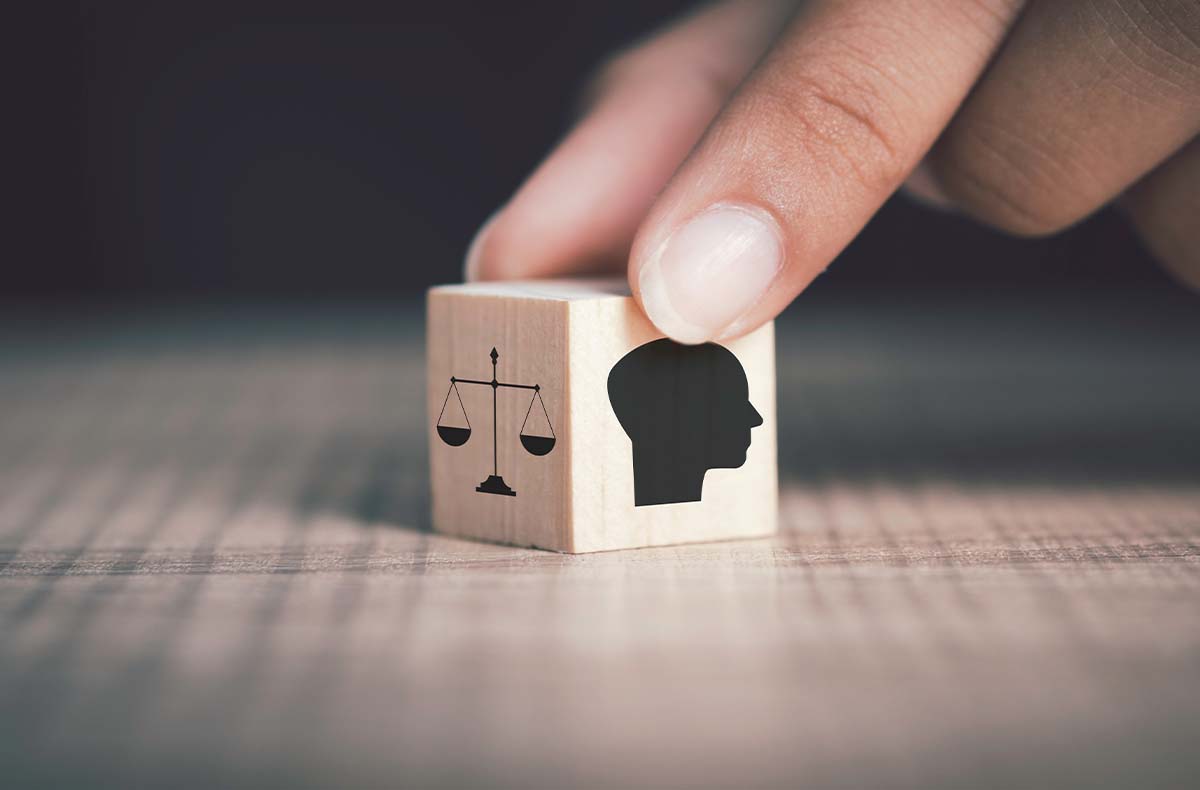
Illustration by Juliana Lagerstedt
“A baby,” runs a saying attributed to writer, biographer, and poet Carl Sandburg, “is God’s opinion that the world should go on.”
I agree. A defining characteristic of a defensible concept of God is the sense of “ongoingness.” To suggest some other mundane examples: wounds heal, and bones mend. Trim a tree, and new growth comes from where you have just cut it. Plants grow through cracks in stone and cement, and animals live at elevations where humans can barely breathe, and in the deepest, darkest depths of the ocean. The determination of life to “go on” is relentless.
What about us?
What happens when one of the earth’s creatures—Homo sapiens—threatens to undo even that basic assurance of ongoingness?
I hardly need to go into detail (for anyone who has ears to hear) about the global climate catastrophe unfolding right now. Perhaps it is sufficient to point to biologist E.O Wilson’s research that indicates we are now in a period of mass extinction whose only precedents are the wiping out of dominant species by asteroid impacts and widespread volcanic eruptions. There is no longer any indisputable reason to believe that, over time, Homo sapiens can survive its deliberate poisoning of the physical world in which it lives. This is a big deal, and half the country does not seem to care.
Nature takes the long view—as in billions of years—so I am not overly concerned that we will create a dead planet incapable of life. Tens of millions of years may go by, but somewhere, life will survive. “Spring herself, when she woke at dawn, would scarcely know that we were gone,” runs the poem from Sara Teasdale. (And immortalized in Ray Bradbury’s apocalyptic story, “There Will Come Soft Rains.”) Future dominant species may look like cockroaches or rats, but something will survive. “There will come soft rains and the smell of the ground.”
“Should we have children?”
Given this background, I recently asked, on social media, whether those who are parents now would decide once again to have kids, given the state of our world—and also whether younger people today think they could commit to having children in the future.
The response was shocking to me. Hundreds of people agreed that the concern is real—maybe better not to have children at all than submit them to living in this desecrated, befouled natural world that we’ve created and will bequeath to our descendants.
One response: “I had my son 18 years ago. If I asked myself today if I should have kids, I’d say “no.” That’s a big deal since he is the best thing that’s ever happened to me. All I do is worry about his future.”
This is backed up by global research from 2021—a survey of 10,000 young people about the threat of global warming. Nearly 60 percent told researchers they felt “very” or “extremely” worried about climate change. More than half feared the security of their family would be threatened in the near future, and nearly 4 in 10 said they were “hesitant to have children.”
I acknowledge that I encountered pushback on social media. “It’s a wonderful world.” “There’s always hope that maybe your baby will grow up to be the person who fixes things.” “Perhaps you are living too much time immersed in darkness.”
Where is God?
Am I immersed in darkness or perhaps just in reality? I love Louis Armstrong singing “What a wonderful world,” but the reality is that it is not a wonderful world. Or, it’s only wonderful for a very small percentage of people on Earth. The majority live in poverty, war, famine, and despair. With rising seas, soaring temperatures, water shortages, and weather catastrophes. That majority may grow higher.
Where is God in all this? The answer requires us to take a long view of creation. The purpose of this universe, regardless of how uncomfortable it is to say it, is not driven by Homo sapiens alone. We are a billionth of an eyewink in the evolution of the cosmos. You may have been taught otherwise, but we are not the pinnacle of anything. (Indeed, the rest of the physical world might rejoice to have us gone.) We long ago gave up the earth-centric view of the universe. Now it’s time to give up the human-centric universe.
To even begin to address the grave, self-imposed threats to the future of our planet, Christians must let go of the charge in the Bible’s book of Genesis that humans were appointed to “subdue the earth.” That mindset has only led us to where we are now, teetering on the brink of self-annihilation. We have to integrate ourselves into the earth, not subdue it.
If it was our calling to be appointed as dominant caretakers of the planet, we’ve done a terrible, terrible job. We have become the enemy. God, insofar as I understand the concept, wants life to go on, making us enemies of God’s creation.
What steps are Christians willing to take to help address this crisis?



